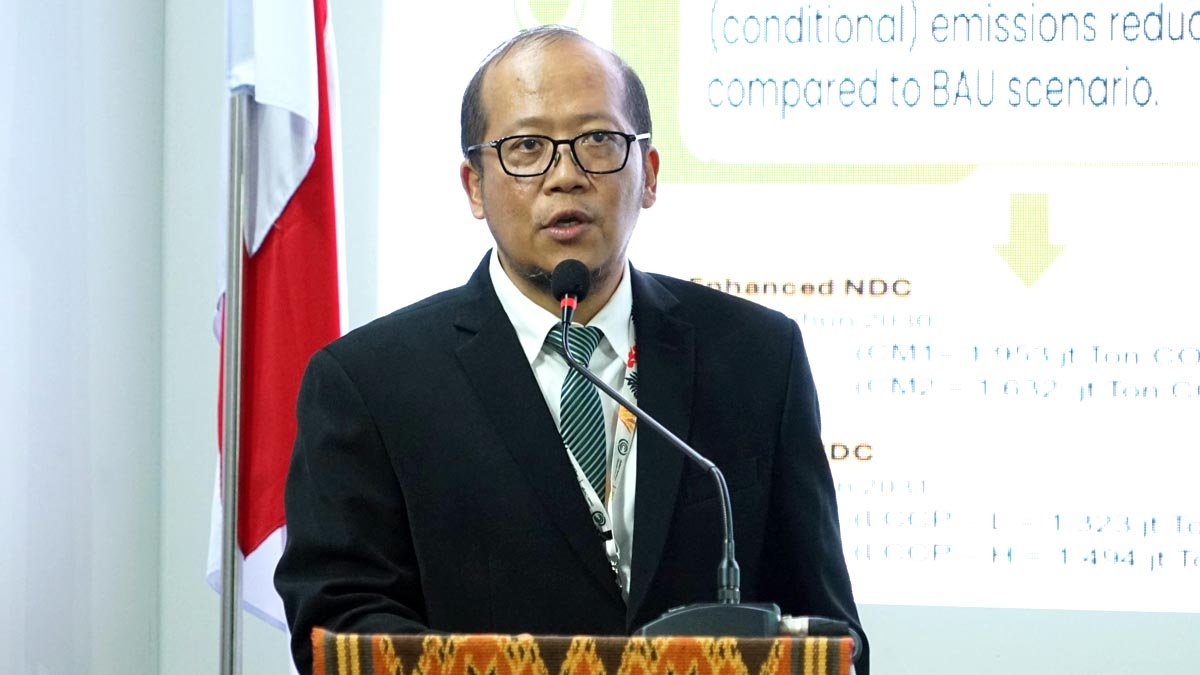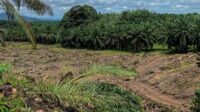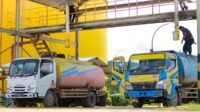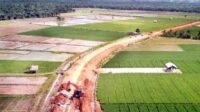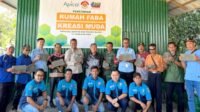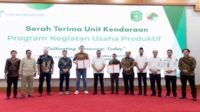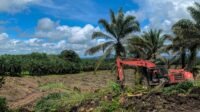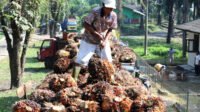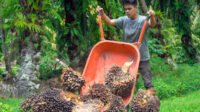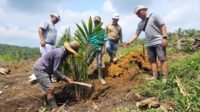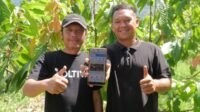PALMOILMAGAZINE, BRAZIL — PT Astra Agro Lestari Tbk (Astra Agro) underscored its commitment to embedding sustainability principles across its operations during the 30th Conference of the Parties (COP30) in Belem, Brazil, on 13 November 2025.
“Astra Agro’s sustainability commitments are reflected through our ongoing digital transformation programs, nature-based solutions, and the adoption of green technologies,” said Dr. Bandung Sahari, Director of Sustainability at Astra Agro, who spoke on behalf of Astra International during the CEO Talks session.
The annual forum, organized under the United Nations Framework Convention on Climate Change (UNFCCC), carries the 2025 theme “Accelerating Substantial Actions of Net Zero Achievement through Indonesia High Integrity Carbon.” COP has become a premier global platform for nations to advance climate policy collaboration and strengthen collective action toward Net Zero Emissions.
Also Read: Astra Agro Inspires IPB Students with Digital Transformation in Palm Oil Plantations
Driving Decarbonization Through Technology and Innovation
Representing Astra International, Astra Agro showcased a series of cross-sector sustainability initiatives, including: Digital plantation transformation using machine learning, IoT-based sensors, and satellite imaging to boost operational efficiency. Peatland rewetting programs aimed at reducing carbon emissions while protecting fragile ecosystems, and Biogas production through methane capture from Palm Oil Mill Effluent (POME), supporting the transition to cleaner energy.

According to Bandung, digital transformation has become a key driver of accuracy and efficiency from upstream to downstream. Complementing this, the company’s “green transformation” focuses on reducing greenhouse gas emissions through landscape stewardship, nature-based solutions, methane capture, and community-based fire prevention efforts.
Drone technology now supports replanting activities, while AI-driven analytics, soil and crop sensors, and satellite imagery enable precise monitoring of plant health, soil conditions, and fertilization needs. A centralized control room system further strengthens real-time operational oversight, including early detection of hotspots via the Firespot monitoring platform.
Also Read: Indonesia Accelerates Clean Energy Shift: EBTKE Guarantees Full Transparency in B50 Biofuel Testing
Peatland Rewetting and Clean Energy from POME
Among the company’s flagship climate-mitigation programs is peatland rewetting. Bandung emphasized that dry peatlands pose a high emissions risk; therefore, canal-blocking and rehydration are essential to climate mitigation.
Turning industrial waste into clean energy is another key pillar of Astra Agro’s sustainability roadmap. POME is processed using methane-capture technology to produce biomethane, which can be used for cooking, electricity generation, industrial applications, and even as a precursor for green hydrogen, a future low-carbon energy source. Residual POME is also converted into organic fertilizers, reducing the reliance on synthetic inputs.
Sustainability as a Long-Term Business Strategy
Astra Agro affirms that integrating digital and green transformations is not simply an environmental agenda—it is a long-term business strategy to safeguard productivity, enhance operational efficiency, and ensure responsible agribusiness growth.
“Our participation in COP30 reflects Astra Agro’s commitment to contributing actively to global climate action and supporting Indonesia’s low-carbon future,” Bandung said in a statement to Palmoilmagazine.com on Tuesday (18/11).
Progress Toward 2030 Sustainability Aspirations
Astra Agro’s sustainability commitments were formalized in 2022 through the Astra Agro Sustainability Aspirations, consisting of 12 key initiatives aligned with the Sustainable Development Goals (SDGs), long-term carbon-reduction strategies, and climate-resilience objectives.
The company’s 2024 progress shows encouraging achievements, including 15.14% reduction in Astra Group’s Scope 1 and 2 emissions from its 2019 baseline. 92.17% renewable energy mix increase across operations, and 100% recycling and recovery of solid waste.
These results strengthen Astra Agro’s optimism for meeting its 2030 sustainability targets while reinforcing its role in Indonesia’s broader climate-action agenda. (P3)

